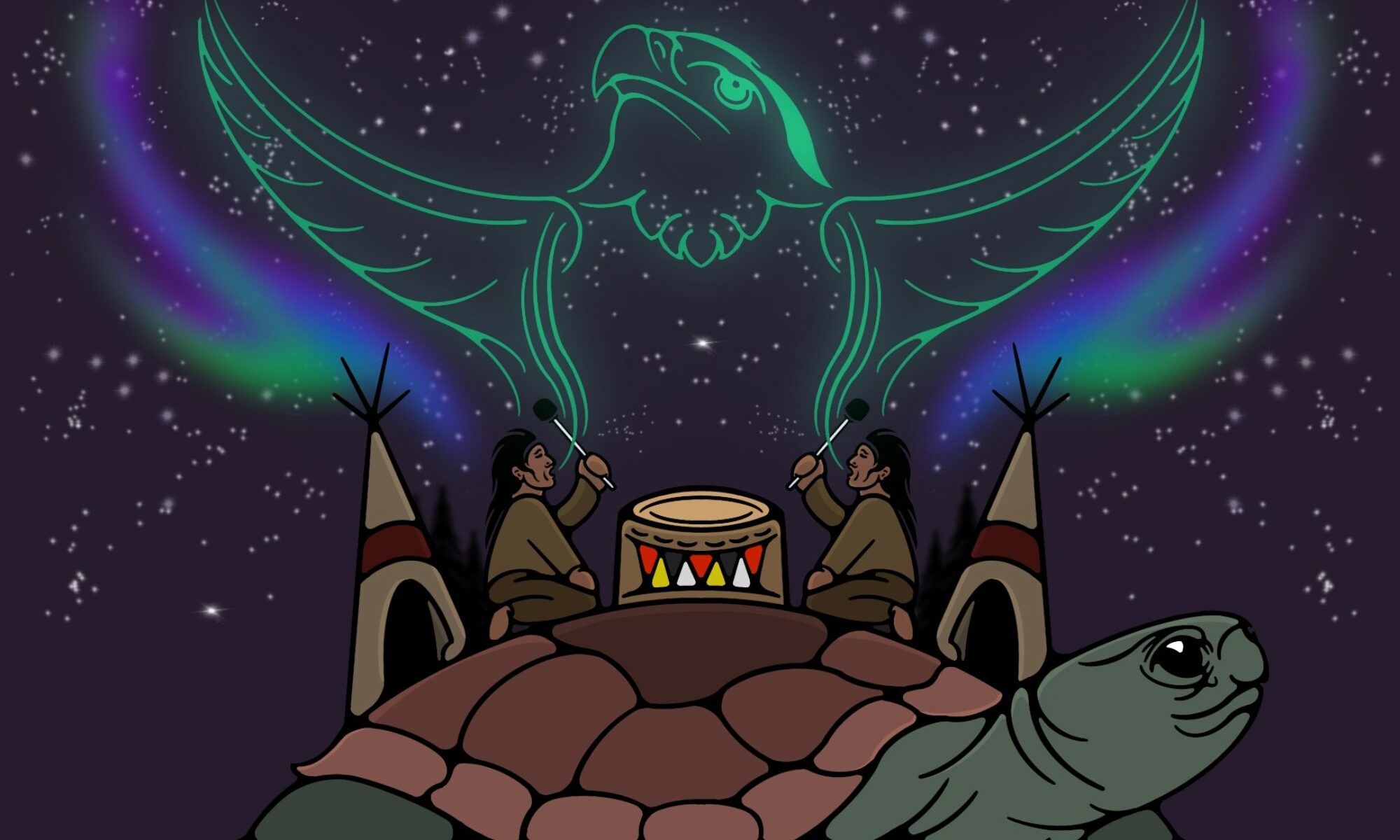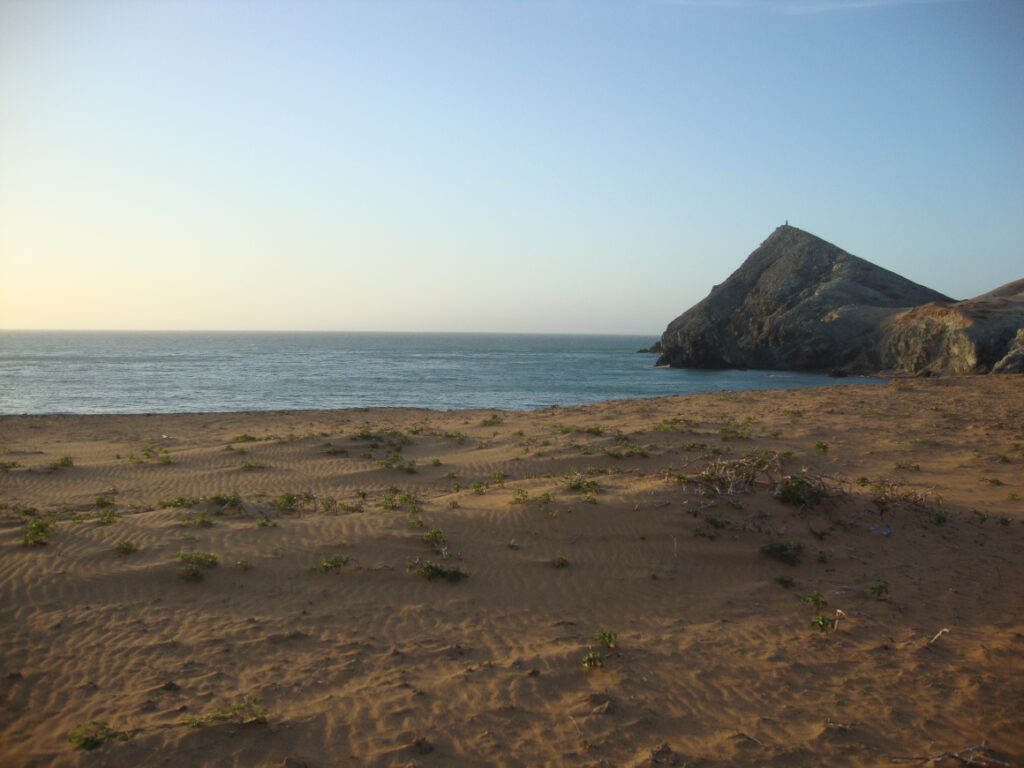
Introduction, selection and comments by Vicenta Siosi Pino
Texts by Rafael Mercado Epieyu, Cristian Dumar Prieto, Qwenty López Epiayu, and Olimpia Palmar Lipuana.
Translated from Spanish by Carolina Bloem and Patrick Cheney
The Wayuu ethnic group inhabits a desert peninsula to the north of Colombia on the border with Venezuela. They number close to one million people, the majority of which speak Wayuunaiki and Spanish. The women are beautiful and it is common to see marriages between the arijunas (white man) and the Indigenous women. The men are battle-hardened; during the 16th-Century the European conquistadors were not able to subjugate them and had to enter into commercial negotiations with them. From the Spaniards they adopted horse and sheep; today goat rearing is the core economic activity of the Wayuu. Horses have been replaced by motorcycles, as they promptly embrace that which facilitates their lives. Their sweeping oral tradition contains their cosmovision; the ancient knowledge that responds to their souls’ queries is preserved in their mythology.
At the end of the 19th-Century the Colombian State established boarding schools so that the indigenous peoples would have to study at the elementary level; in these education centers administered by Catholic priests they tried to get them to forget the mother tongue, traditional attire and their native names.
In the first literature books where the Wayuu are mentioned, they were the guides that knew the desert nooks, the faithful servants or the uncivilized bellicose that impeded progress.
The National Constitution of 1991 declares Colombia a multiethnic and multicultural country. With this recognition, the advocacy of native languages begins. The Wayuu lose timidity and those that have obtained bachelor’s degrees or higher and mastered the Spanish language write stories of suffering, defeats, discrimination, unveiling the Wayuu heart; these stories are reminiscent of those traditional songs called jayeechi that narrated wars, abductions, hallucinations and forbidden love.
The resolute desire is to make visible this great nation, through a new and real history.
Using persuasive words that lead to reasoning, the Wayuu peacekeepers or pütchipüü prevent interclan wars. In this land a commitment made by word is inviolable; there’s even an ancient law that prohibits giving bad counsel, and if someone is impacted by a misguided recommendation the harmed must be compensated. Out of respect for the word, the Wayuu are not big talkers.
~~~
Rafael Mercado Epieyu, from Manaure, linguist, Master in Education, professor at the University of Antioquia and researcher, brings the word to life in a poem:
¿JALEEKUAT TÜ PÜTCHIKAT?
Tü pütchikat chejeejatü eere eein
Suujulain tü lapükat
Antüsü sümaa süsamala sütüna sawaikat
Süpüla shi´inanajüin tü jülüjakat sa´in tü kataakalü o´u
Sulu´u wanee müleushaata süi
Sukumala süpachera sajapü maachan,
Shia yala´ eere tatunküin.
Yalasü yala´ eere tayawatüin sau
Sümaa eein süpüla kasuutalüin tü pütchikat
Ma´aka tü mannuuyakat eekalü
Sümaa süpüchiralaain sau uuchikat.
Tü pütchikat shia tü shiraira tü jemiai
Shonnotokot sawai
Ekerotokot sümaa süsamala sütalu´u mma´kay
Süpüla sümatüinjatüin sa´in süle´eru sulu´u eyüüin shia.
Tü pütchikat eesü shiwe´erain sulu´u wuishiin
Sulu´u süsiin, süsiichein, süsii
Yala´müsia´ ei´yalaain sa´anasiase sukumeraaya tü weikat mma.
Tü pütchikat shia tü shi´irain talakat wuchiirua
Shia türa sükalirakat mma yonnototookat eekai türa watchuashiikat
Shia türa shipishana sütürala juya´ awalakajakat
Antakalü sulu´u jouttalin shia sünain wache´e.
Tü pütchikat shia supushua sümünakat tü palaakat
Antakalü sulu´u sütoloin sümaa kasuutain shia.
Tü pütchikat shia anaajaka tü watüjaakalü au jee müsüja tü wayuwaakat.
Tü pütchikat pia piakat taya tayakai.
Tü pütchikat wattasaalin süno´u, pushupushu süno´ukalia ma´in.
Majataasü sünüiki maachan tamüin
Wanaa sümaa tasaküin shia: ¿Jalejeekuat tü pütchikat?
WHERE DOES THE WORD COME FROM?
The word comes from the regions
hidden in dreams
it comes amidst the cold wings of the night
to weave thoughts of life
in the immense hammock
created by the skilled fingers of my grandmother,
that is where I sleep.
It is there where I have understood
that the word can be white
like the mists that sits
and extends on the ridge of the mountains.
Words are the dew drops
that fall during the night
and penetrate the land with their cold physique/body
to refresh their golden
and warm mother bowels.
The word then germinates within the plant world
it transforms into blooms, flowers, roses
and that is how the beautiful smile of Mother Earth comes to be.
The word is the joyful choirs of the birds
is grains of sand that dance with the desert wind
is the noise of the thunders that burst
and reach our ears in the form of a breeze.
The word is comprised of all the waves of the sea
that arrive in white foam.
The word is where our wisdom and our essence are kept.
The word is comprised of you and of me.
The word has many colors, but she is black.
Once my grandma spoke to me that way
when I asked her: Where does the word come from?
The soul of the Wayuu people, once they die, goes to Jepira, a place in the middle of the sea where their deceased relatives are. Rafael Mercado Epieyu recreates this mythological place so that no one is afraid to cross its borders.
SALAJATSHIMÜIN SÜMÜNAKAT PALAA
Chayaa sajalatshimüin sümünkat palaakat eesü wanee mma
Eere sa´in wayuu waraimajataain so´opüna wanee anoii wuishiisü
Yonnototoosü sutuma shi´irain nükashainra taatchon molokoono
Talatüsüirua sümaa jaajatatain shiainrua sutuma nime´erain tatuushi utta.
Yalayaa tü sa´inkalu wayuu amürajirasükalüirua
Eeshii süpüla nayonnajüin sünain washe´inwaa jee sümaa chuttaain naya
Nu´upala chii washi´ müloushikai Juya´.
Cha´aya sajalatshimüin sümünakat palaa eesü kasiin tü kanasü
Tü shi´inalakat maachan walekerü nü´ütpa´a chi ka´i chimitakai.
AT THE END OF THE OCEAN WAVES
At the end of the ocean waves there exists a place
where the souls roam on green flatlands
dance to the erotic rhythm of grandpa Molokoono-turtle’s drum
rejoice and laugh with the gracious words of bird grandfather Utta.
There, the lover souls
can dance naked and moist
in the presence of the great father Juya keeper of the rain.
There, at the end of the ocean waves are the flowery colors
that grandmother walekerü-spider weaves, in presence of the golden sun.
~~~
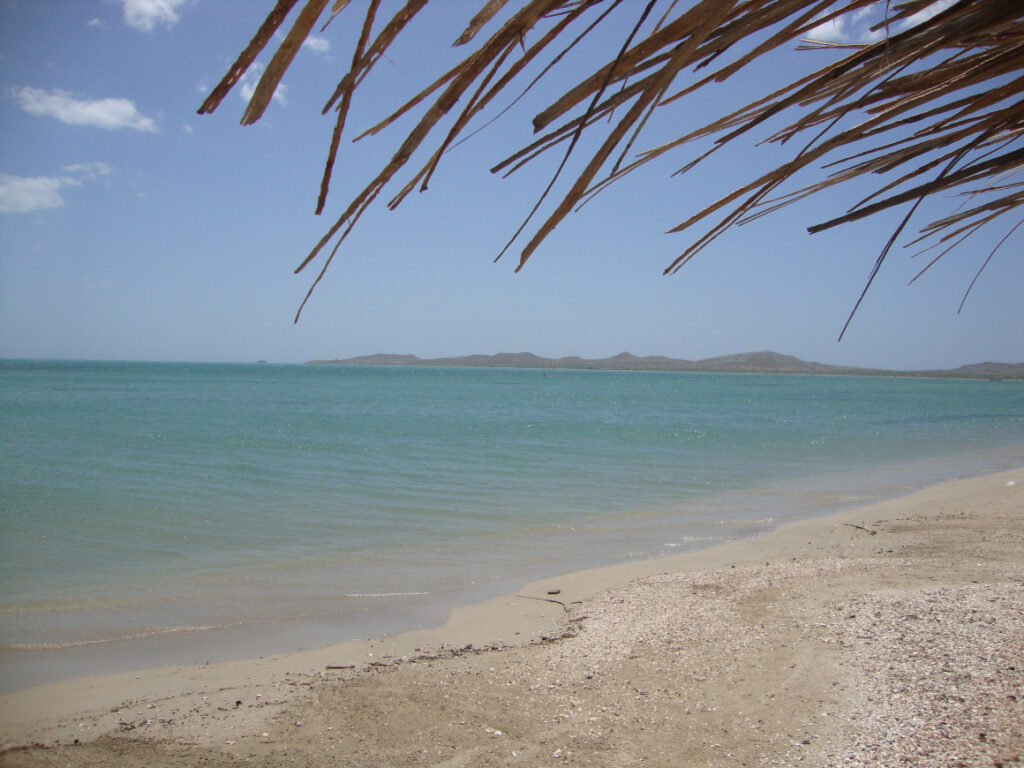
In order to get to the community of Wotksaainruu, one must go through the desert of La Guajira, for an entire day; that is where Cristian Dumar Prieto Fernández from the Ipuana clan was born. Once he finished his post-secondary studies, with the momentum of his youth, he decided to travel the country. He dreamed of seeing new places, but once he was there he could only think of his ancestral lands and the poems his soul treasured.
NULAPUIN WANE WAYUU IIPUANA
Taya wane mushale’e
Chii eirajakai Julu tü lapü wenshiijatkat;
Kanalashi tü pütchi anaskalu
Tü kamanewa joukaijatka.
Katunashi pia jupula awata wattamain juka
Nuchoin pia wane mushale kapulainshi.
DREAMS OF AN IIPUANA
I am a crested caracara bird that
Sings in its eternal dreams
Warming your being with fluid words,
Infinite tenderness,
Your day will break
You will fly high,
Because you are a son,
Of a gladiator caricare
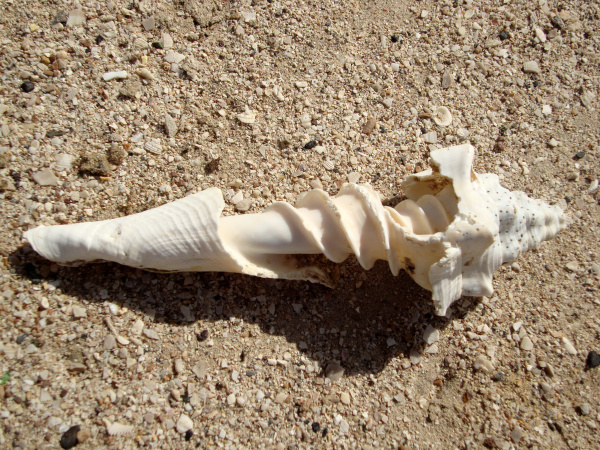
Cristian Dumar knows the hardships of the long summers. He suffered through the thirst that parches the throat and makes the heart beat faster, the anxiety of the search for liquid in the artesian wells; he felt the hopeless pain.
CHII WANESHIAKAI WÜIN, JOSOSHI
Oyolojashi jutüma jirakaya kaika,
joso’ joso’ musü tü ataka,
achechejasu tü potchikalu jau
Namuchi na tepichikana alejatsu malüïn.
Matsü jumoutekai tü nayolujuka
Eisalashi Juma josoin main tü neimataka junian atunka.
Mojusü main jain tü neika
Ayalajusü jutü piyüshï joukai
Nojoluinapa eirajuin na wuchikana wanajüma juwasalain tü piyushika.
Tü alawakat jia tü namuliainka.
Outa’a musia tü samatchika awasajasüne’e
Amatsajusü nain jütüma muyasü.
Ono’oweyashi noutkü
¿Alamüinya erajan?
Chaa wane mma ajalajusü nain wane jintüin.
Anika taya ananaja muin nau najapu na ojonoshikana juchirua juwuira mma, aisü main namuliala
Juka jamuin mawuinralirü tü wainkat.
Onosu Juma tü müliatchikat malüinpa Jain anoishika tú mmpaka
¿Jama jolü?
Jamuinjatü waküaipa, majirashï waya wapüshuaya
Kasache wawaletka aka tü ata’a osojoikaluirua eh
Juma yalain ne wotüin mma tü katakalü o’ü
Jososhi chi luopü watkasainrukai.
MY ONLY CREEK DRIED UP
Now that the gaze of the sun damages it without compassion,
The skin dries up little by little
Mud hardens up
The children’s pots come back empty
They fall asleep with dried lips
And disheartened faces.
The sad mother cries in the heart of the night.
The birds no longer sing at dawn
The felony is its misfortune and the aura evaporates
It asphyxiates the imminent thirst,
Others try to take flight
But where to?
Somewhere the hope of a child fades away.
What about me? I see the hands that perforate the earth’s chest
Trying to stop its few tears in ponds of hopes,
Not even our soul can cry…
It evaporates in silence, right next to dusk of the boundless desert.
And now what?
The question we all ask….
Who will clean the withered skin?
While pores of life filled up with dust
My creek Wotkasaainruu dried up.
~~~
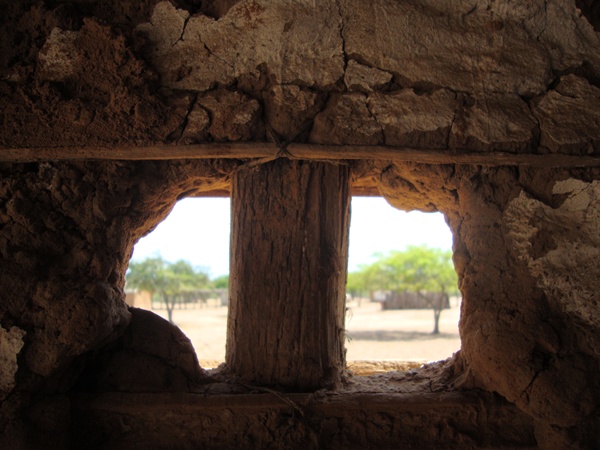
On the Zahino Indigenous reservation, to the south of La Guajira, lies Qwenty López Epiayu’s rancheria. She studied International Trade, but writing became her way of getting free and dreaming of some justice. She has participated in public readings, published in magazines and she works with Wayuu women, raising awareness of their rights.
Qwenty draws with words what is there in her heart, she wants a better lot for her people and she calls others to lay aside tepidness. But, if they don’t venture, she lifts up her voice for her siblings.
SECOND TEXT
Your tracks harden charting impassable paths
The art of weaving circular thoughts achieving disentanglement from indifference.
Exists perhaps a difference between being and feeling the purpose of the incomprehensible for a different world?
History has marked its fate and the cycles begin to unravel.
Neighboring Qwenty’s house lies the coal mine, open-pit,- the largest in Latin America. The racket of the barbaric mineral exploitation that does not rest, it robbed the Wayuu people of sleep. They are foreign companies who destroy the earth’s womb and with it the next generations’ inheritance, this Wayuu woman says it best in her poem:
FOURTH TEXT
Upon your skin’s debris I have laid down my cartilage.
Upon the depleted hope in waiting, I have lifted mine
Upon your cry I have cleansed the salinity of your eyes and I have felt them mine
So mine that I have transpired your solitude and you have taken root with a mighty force, to make heard your will.
Truth is concealed by the thundering of the engines that did not allow you to dream and it all became one eternal night
Between cycles of decay and dismemberment
Land coveted by foreigners and valued by natives, that do not cleave to the neglect of their memories and to the treasure of the coming generations.
Ay my Guajira, how many cries upon your soil
And the silences buried beneath Kai- sun’s view, that does not reveal sums for sleeplessness.
~~~
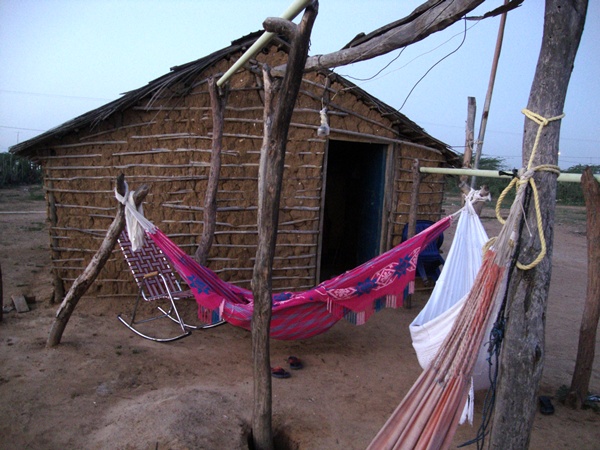
Olimpia Palmar Iipuana grew up in Paraguaipoa, a small group of country homes on the border between Colombia and Venezuela. She is a professional of Mass Communication, specialist in Human Rights, and member of the Communication Network Putchimaajana that has trained hundreds of Indigenous youth free of charge in the use of alternative media. She is a storyteller. Her sweet voice recalls the unease that assails the children in the rancherías, all the while revealing the secrets uncovered by the Wayuu people in nature.
THE (FEMALE) MESSENGERS FROM JUYA
It’s afternoon, in La Guajira a cool and humid breeze blows across the evening wind. From the roof of our yotojoro shelter we hang pots, skins, bags large and small, rolled up ropes, and that which stands out most is a large fabric that is on top of where we sleep; my grandmother put it there to protect us from the tuqueque lizards, centipedes and rodents that come close attracted by that type of wood. Right when the breeze conjures up a rain smell, Anuchan, my father, silently gets up from his chair wrapped in goat leather and he stretches toward the roof, with his hands he reaches a handful of fabrics and bags that cover a calabash bowl, that for many years was there hanging. I peer from my hammock and as I see the container in his hands, run to satisfy my curiosity.
My curiosity, which increases day after day, is the result of my hammock afternoons. I don’t remember when the first time was that I saw those fabrics suspended from the roof; when I would lie down at night I had the flight of fancy that when I was taller I would go through every one of the bags and pots that were kept there. Covertly I would make up stories about the secrets that my mother hid in every object from the roof.
My mother Saara ran to the yard, to meet my father, and threw upon the ground a large sheet that she also got down from the roof. I stuck close to my father to find out, firsthand, what they hid in the calabash bowl, it was like the unveiling of a secret. I saw that many seeds fell upon the fabric, my father bent over haltingly, as he’s almost two meters tall, same height I aspire to reach in my adulthood. Once they were on the ground he selected his preference of seeds: <It has to rain soon, the star Iiwa is already in its place>. He said to his faithful companion Saara.
She responded to him, but I wasn’t able to hear; the parade of butterflies totally attracted my attention and I was enjoying it greatly, some flew very low, almost stuck to the ground, others over the top of the prickly pears and the goat corral that we have close to the kitchen, they were innumerable and colorful. I began to run among them when I saw my father Anuchan, upset, collecting his seeds: <It’s no longer going to rain, there won’t be a crop either, Eleena come and put this away>. He ordered me.
I ran as fast as I could and grabbed the calabash bowl where the seeds were. Finally, one of the treasures from the roof was within my reach, they entrusted it in my hands. He knows that I’m not going to put it up, being six years old I’m not even half a meter tall, this is why after tasting the seeds, I put them in one of the bags that hang from the wall of our only room.
Just as my father had said, strangely, the clouds began to disperse, the breeze ceased to be cool and the smell of rain faded away, we now only smell the mazamorra with milk that mother is preparing on her blazing firewood stove.
Even though I like mazamorra a lot, that day I ate it reluctantly because I didn’t understand what father had done to make the rain go away; that was the great day that I was going to get to know the rain. Here, in La Guajira, the last downpour that fell was in the early morning of my birth. Sometimes even ten years go by without rain, which is why I still was not acquainted with that natural phenomenon. I was going to discover the use for the parcel of land that sits right before you arrive at the dry hole called jagüey. Up until now, I only knew that all that works with the rain.
My father’s prediction left me uneasy, but my childlike innocence stopped me from asking him, which is why I stayed quiet and preferred to imagine the rain like a generous man who had a herd of donkeys and went visiting house to house filling every family’s clay pitchers and jagüeys. My thoughts were more profound because I was even trying to get this generous lord called Juya some helpers.
Days later, the clouds formed again, the sky darkened; I was thrilled because now I could meet lord Juya. Suddenly, small drops of water began to fall from the sky, they turned into many in a short amount of time; it made me so sad that I started to cry because now those drops would damage the road and the lord rain would not be able to arrive to our house with his herd of donkeys and then I wouldn’t find out what that vegetable patch and the jagüey are used for.
I tossed and turned many times in my hammock, searching for the words and the manner in which I would tell father, meanwhile, the dragonflies wot’chonot entered the stage, my father smiled upon seeing them, his happiness was apparent, he hugged me and as if he knew I was in need of an explanation said: <The wot’chonot are sent by Juya, they flutter over the land to find out if we, the Wayuu people, the animals and the plants are thirsty and they tell him that we are no longer even visiting one another because we’re busy searching for water and like that, Juya makes the water pour from the sky so that our jagüeys are filled>.
I understood that those drops that fall are Juya. I dried my tears and stopped thinking about the herd of donkeys that would bring water and I began to swing in my hammock to enjoy my first rain.
Days went by and Juya returned to surprise us, this time bringing a lot of water, there was thunder and lightning, it seemed as if someone was splitting some giant firewood up there, the rain lasted all morning. In my house it was all about protocol: mother Saara took off my red manta dress and said: <Juya doesn’t like for people to dress in that color>. She also hid the knives and machetes: <He will think we are challenging him>. She commented as she wrapped them in some fabric and stuck them under the table.
In the afternoon, when the sun came out radiant, the three of us went to the conuco (parcel of land) to plant seeds; I climbed to top of a large tree and from there I saw the pond that before was dry had been filled with water; I told mother about my new finding, she smiled and told me big news: <We will no longer have to go far to get water on the donkeys, we will have it here, close, there we will bathe and we will take it to the house>.
Father interrupted our conversation to tell me that I had been born with my umbilical cord entwined around my neck and that meant that my hands would bear good fruit from that which I planted: <Many people will come to ask you to plant with them, they will pick you up early and they will bring you back in the afternoon, it is not a job, it’s sharing your gift with others>. He would tell me, while he put dirt on the seeds that I placed in the holes that he had made in the soil. As I felt that there was trust, I asked him about that afternoon when he got angry and made the rain go away, father Anuchan smiled and with an indulgent tone he told me: <Butterflies are also messengers from Juya, but they are bad emissaries, they’re liars, they flutter over donkey urine and say that we the Wayuu people don’t need water, then Juya doesn’t come, he goes elsewhere, which is why when we see them arrive we don’t rejoice, in contrast, dragonflies wot´chonot are good messengers, they always tell the truth and we rejoice when we see them>.
Little by little I learned that in our rancheria it is not only people that speak, but rather that birds can communicate messages, that the breeze can inform of a visit and that an umbilical cord entwined around a neck at birth will keep you busy every planting season, but, above all, I learned that Juya, is the water that falls from the sky and makes the land germinate, giving us an abundance of nourishment, helping us to live better.
That year there was a good planting season which is why I got to know the parcels of land of the Jusayu, Epieyu, Jayariyu, Apshana, of the rich and the poor: I made it all the way there with my miraculous hand that made all the seeds I planted flourish.
In the following months, herds of donkeys would arrive at my house coming from different rancherías, on their backs they brought bags of melons, watermelon, beans, pumpkin and even goat, mother received them for me and went to Maicao to sell them.
While we awaited her with the donkey to help her return home, father left me this reflection that from that day on guides my life: <From the butterflies you must only copy their elegant manner of flight, from the dragonflies wot’chonot the honesty, always tell the truth so that you bring about great joys>.
My mother returned with a load of food and yarns with which my first hammock would be made, from that time forward I assumed that for my parents I am the wot’chonot that brings about for them the most pleasurable joys.
~~~
A generation of Wayuu youth witness how their people and age-old territory are plundered, tarnished neglected, hence, in retaliation, they have taken up the word, and they have sprung up with poems and stories that speak of their philosophy, resilience and their value, and they have written them on paper so that they remain for centuries on end.
More about Vicenta Siosi Pino
Vicenta Siosi, Wayuu of the Apshana clan. Professional of Mass Communications, winner of the National Award for Children’s Literature of the Atlantic, in Colombia and an honorable mention in the international competition Enka for Children’s Literature; she has been translated into French, English and Danish.
- “I never heard the birds again”. http://www.latinamericanliteraturetoday.org/en/author/vicenta-siosi
More about the translators
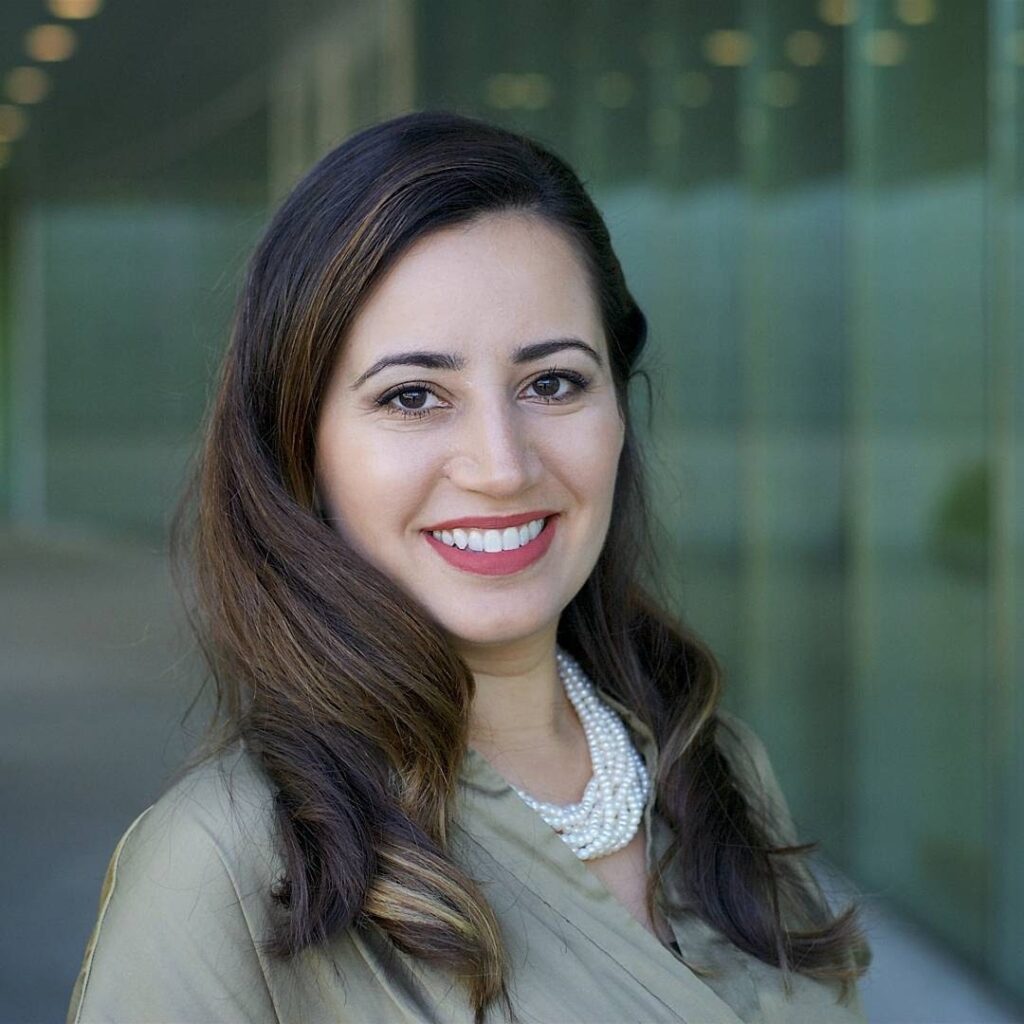
Carolina Bloem teaches Latin American Studies and Spanish at Salt Lake Community College. Her research focuses on present-day Wayuu oraliture and its impact both in local and international communities. Past research interests include travel writing in 19th-Century Colombia and Venezuela, and conduct manuals and their biopolitical role in society.
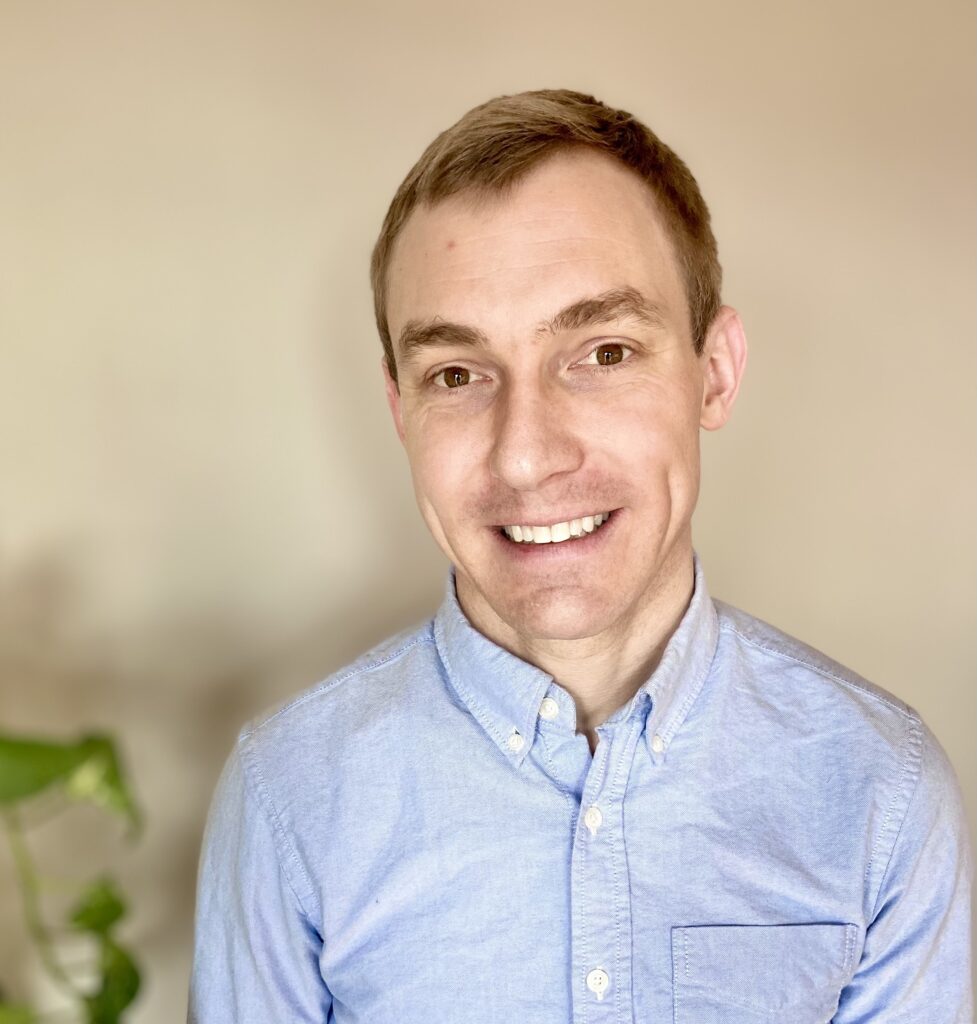
Patrick Cheney has a Master of Arts in Latin American Studies from the University of Utah. He is a translator with experience in Spanish, Nahuatl, and Guarani. He has worked on abuse documentation on the Mexico-US border and also has experience as a Spanish-language medical interpreter. He currently lives in Salt Lake City and is a staff member at the Center for Latin American Studies and the Asia Center at the University of Utah.
